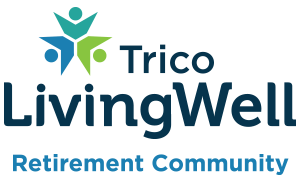Blog | June 17, 2024
Digital Scams – 5 Tips For Seniors To Maintain Digital Health

In the digital age, scams targeting seniors have become all too common, exploiting their trust and unfamiliarity with constantly evolving digital platforms. Here are some practical tips to help seniors identify and avoid digital scams.
Know The Common Scams
In 2024, the following scams targeting seniors are common:
- Government Impersonation Scams:
With this tactic, scammers pretend to be from a government agency like Medicare or the CRA and will call claiming that they need account information or that there are unpaid taxes that require immediate attention. - Tech Support Scams:
In this scenario, a scammer may impersonate tech support from a well-known company like Microsoft, or a telecommunications company. They may offer to fix computer problems for free and ask to remote into your computer to gain access to your personal information. - Phishing Scams:
These scams involve sending emails or messages that appear to be from legitimate sources, such as a bank or a familiar service provider. The messages urge the recipient to click on a link or download an attachment, which can lead to malware installation or direct them to a fake website designed to steal personal and financial information. - Grandparents Scam
In this scam, a grandparent will receive a phone call from a con-artist who will pose as one of their grandchildren in a precarious situation, such as being in jail, in the hospital, or financial need. The con-artist will then ask for the grandparent to transfer money.
Think Before You Click
Scam emails are written to look like they come from legitimate sources, such as your bank or a service provider. These emails will often have a link in them that they urge you to click. To be safe, make sure to verify the authenticity of the message by contacting the organization directly using a phone or email you trust, not the contact in the email.
Beware of Urgency
Scammers will try to create a sense of urgency to make you panic and act quickly. Be skeptical of any communication that urges immediate action, especially if it involves providing personal information or making a payment.
Protect Your Personal Information
Legitimate organizations will never ask you for sensitive information through insecure methods, like over an email or phone. Never share personal details like Social Security numbers, banking information, or credit card numbers if this information is requested unexpectedly. Contact the organization using confirmed contact information to figure out the best way to confirm personal details.
Use Strong, Unique Passwords
When creating your password, try to avoid using phrases or names of people, places or things relevant to your personal life that could be identifiable online. Instead, opt for a mix of letters, numbers and symbols. Try to use different passwords across sites. You can use a password manager to help you remember these.
By staying informed and cautious, seniors can better protect themselves from the digital dangers that lurk online. Remember, staying safe online is about staying informed and connected with trusted resources and communities. At Trico LivingWell, we offer our residents tech support programs to ensure they stay up to date in the digital world.
For more resources and to learn how to spot and stop senior scams, visit https://antifraudcentre-centreantifraude.ca/index-eng.htm

 Book A Visit
Book A Visit Connect with a Lifestyle Leasing Consultant
Connect with a Lifestyle Leasing Consultant
